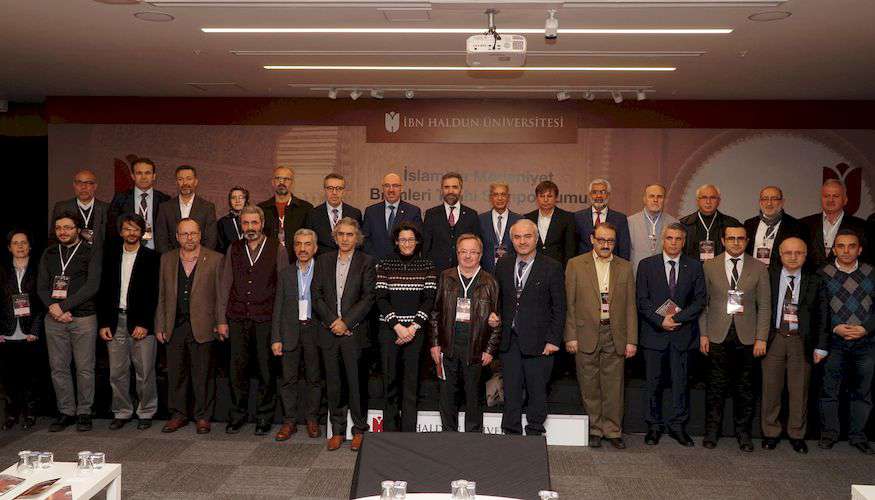


The symposium highlighted the valuable contributions of Islamic civilization to the social and humanitarian sciences. At the Symposium, over 100 academicians from Turkey and around the world presented papers in 27 sessions, including opening and closing conference sessions held in 4 different halls for 2 days.
Speaking at the opening of the symposium, President of Ibn Haldun University Prof. Recep Şentürk pointed out the hundreds of events held within the scope of “2019 Fuat Sezgin’s Year.” Most of these events focused on the contributions of the Islamic civilization to natural sciences ignoring the contributions of it to the social sciences and humanities, according to Şentürk. Emphasizing that the symposium will eliminate this deficiency, Professor Şentürk stated that the revival of the Islamic civilization is possible only by re-introducing the contributions and the classification of the sciences of the Islamic civilization. He underlined that Turkey appreciates the scientists it has raised. “Even today, our education system teaches our children that Muslims are behind in scientific-technique (why) since primary school. The aim of Fuat Sezgin was to destroy this paradigm of backwardness, he did it. We must rebuild our perspective of education by demolishing the prevailing paradigms and instilling self-confidence in our children and making them proud of our past experience. Professor Şentürk ended his speech by thanking the participants and contributors to the symposium.
In the opening speech, Professor Mahmut Ak, the President of Istanbul University, also said that more than 800 events were held throughout Turkey within the scope of 2019 Faut Sezgin’ Year. Chairman of the Board of Trustees of the Fuat Sezgin Research Foundation for the History of Science and Technology in Islam, Mecit Çetinkaya, briefly mentioned in the opening speech the lives of Fuat Sezgin and his wife Ursula Elisabeth Sezgin, and the activities of the foundation. With Fuat Sezgin’s words, “Muslims have a great sense of inferiority to Europeans because they do not know or misrepresent their rightful standing in the history of science. My purpose is to show and teach them the great stand of their ancestors in the history of science,” Çetinkaya concluded his speech.>
The closing conference of the symposium was held with the participation of Ibrahim Kalın, the Chief Advisor of the President of Turkey. Kalın started his speech by saying the words, “Fuat Sezgin has the identity of a scientist who put important fragments from our lost history into our agenda,” and continued “What you cannot name is not yours.” He showed the possibility of developing alternative discourses in a medium dominated by a Eurocentric perspective, where Western paradigms were used for naming, dating and classification, and a civilization concept could not be put forward with our own mental production. This is the place where ideals of civilization come to life, the ‘city’ the ‘Medina’ where the civilized attitude is based on reason and virtue. These are not issues that can be dealt with independently of a worldview and imagination of existence. Islamic civilization has an existence and scientific vision, which is in constant contact with the source of existence. It is planned to book all the papers presented at “History of Civilization Sciences in Islam” symposium, which has been contributed by more than 100 academicians from Turkey and the world in 27 sessions for 2 days.